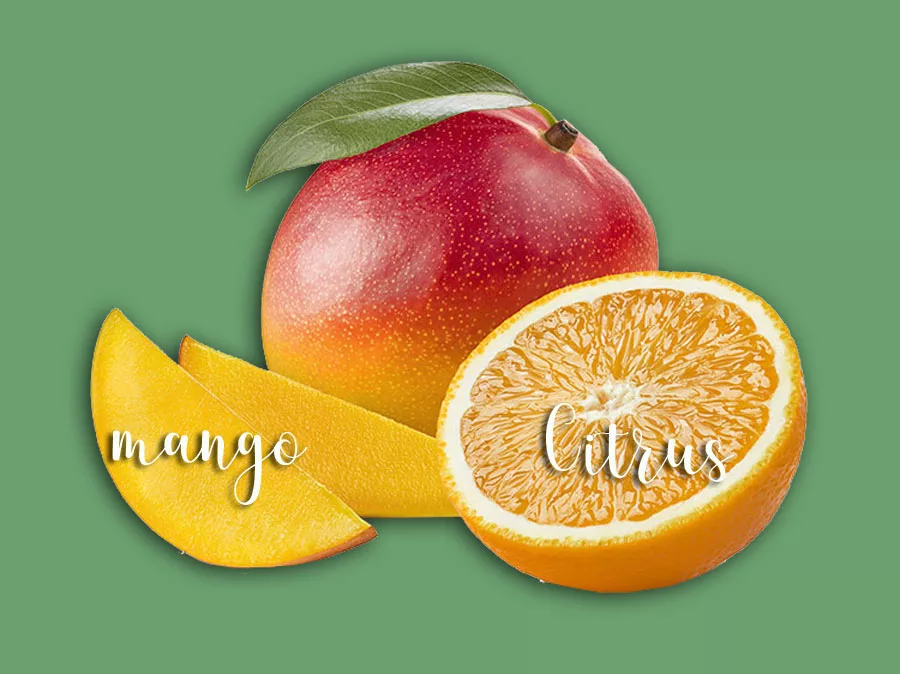For those of you who are fans of mangoes, have you ever tasted sour mangoes and then wondered whether mangoes are citrus fruit. A question “is mango a citrus fruit” which seems simple and easy to answer, turns out there are still many who don’t know how to classify mangoes, especially those who see fruits classified according to taste. But what the answer is, this will certainly surprise you.
What is a Citrus Fruit?
Before we find the answer to the question “is mango a citrus”, it’s a good idea to first know what citrus is. Once we understand the definition of citrus, then of course we also understand where mangoes should be grouped, whether they are citrus or not.
Citrus is a group of fruits belonging to the Rutaceae family, usually juicy and sour in taste and the inside of the flesh is filled with acidic liquid and surrounded by a thick skin which inside the skin is rich in citrus juice or oil.
Some examples of fruit that are classified as citrus are grapefruit, oranges, tangerines, lemons and limes.
Is Mango a Citrus Fruit?
Now that we clearly understand what citrus is, let’s see what is the answer to the question that many people search on Google “is mango a citrus fruit“? The answer is “no”, mango is not a citrus fruit.
So, that is the answer, Mango is not a citrus fruit.
It cannot be denied that mangoes have some of the same characteristics as citrus, especially in terms of their acid content, but this does not mean that mangoes should be grouped under citrus. Citrus and mango are clearly different and the trees are also very different. So, it is clear that mango is not a citrus fruit. Those included in the citrus group include grapefruit, lemon, orange and others. Meanwhile, mangoes with large seeds in the middle of the fruit are grouped into cashews and pistachios. So, the two are very different even though there are some of the same characters.
Based on the University of Florida’s IFAS (Institute of Food and Agricultural Sciences), and the US Department of Agriculture (USDA), it is stated that mangoes are included in the Anacardiaceae family. Even though mangoes are juicy and have a sour taste, not all mangoes are like that, while citrus fruits are juicy and full of acid, even though some of them are sweet like oranges.
Mango is a fruit with a seed in the center of the fruit, and mangoes are closer to peaches and plums. Mango is a fresh fruit from southern Africa, but is now cultivated in many regions of the world, in tropical or sub-tropical regions.
Does Mango Have Citric Acid?
Yes, mangoes contain citric acid and the amount of course varies according to the ripeness of the fruit. What is citric acid? Citric acid is a natural organic acid from plants, mainly found in fruit, including citrus fruits such as lemons, oranges and non-citrus fruits such as mangoes.
Mangoes have a sour taste containing citric acid, malic acid, tartaric acid, and all of them collaborate to create a sweet and sour taste. However, when compared with oranges, the citric acid content in mangoes is certainly lower, but this content still plays a big role in providing overall acidity to mangoes.
Mangoes that are high in citric acid will have a more sour taste compared to mangoes that have a lower citric acid content. But the sour taste is not only influenced by citric acid because mangoes also contain several other types of acids.
Comparison of Mango Vs Citrus Fruits
Similarities between mango vs citrus fruits
- Nutritional content: Mango and citrus are both fruits that contain lots of vitamin C which is useful for the body’s immunity. Vitamin C functions as an antioxidant which is very important for body health.
- Low in calories: Mangoes and citrus fruits are relatively low in calories, and are suitable for those who want to lose weight.
- Natural sugars: Both contain natural sugar, this sugar gives a sweet taste to citrus such as orange and mango.
- Versatility: Both are versatile and this is highlighted by their dual uses, as they are both delicious for use in a variety of culinary recipes.
- Seasonal: Mangoes and oranges are not perennial fruits, they are both seasonal, so they are only available at certain times. This is different from coconuts which always bear fruit without knowing the season.
Differences between mangoes Vs citrus fruits
Earlier we saw some similarities between mango and citrus, now we know some of the differences.
Taste: Mango has a sweet and aromatic taste, citrus has a tart taste, and acidic taste. The taste of mango is very unique, and oranges have a refreshing and juicy taste.
Appearance: In general, mangoes have an oval shape, and citrus fruits have a small and round shape.
Nutrient profile: Another difference between mango vs citrus is the nutritional content. Mangoes are rich in vitamins A, C, folate, while citrus fruits are rich in nutrients such as fiber and vitamin C. Citrus fruits contain flavonoids and phytochemicals which certainly have great health benefits.
Cultivation: Another difference between mangoes and citrus is the cultivation area, mangoes are grown in tropical areas, and citrus can be grown in tropical and sub-tropical areas.
Culinary uses: Mango is used as an ingredient in making sweet dishes such as smoothies, salads, desserts, and citrus is a fruit used in sweet and savory culinary dishes such as marinades, salads and various drinks. Citrus is widely used in juices and mangoes are widely used in forms other than juice.
Availability: Mango is not widely found because it only grows in tropical areas. Meanwhile, citrus grows a lot in tropical and subtropical areas so there is a lot of supply and it is often exported to various parts of the world.
Explanation of Why Mango is Not a Citrus Fruit
Mango and citrus are not closely related plants as explained in botany. Both of them come from different families and even grew up in different regions. Even though they both have a sour and sweet taste, they are very different and come from different families.
| Mangoes | Citrus Fruits | |
|---|---|---|
| Family | Anacardiaceae | Rutaceae |
| Genus | Mangifera | Citrus |
| Origin | South Asia | Southeast Asia |
| Nutrient Content | High in vitamin A and folate | High in vitamin C and fiber |
| Plant type | Tropical fruit | Citrus fruit |
| Flavor | Sweet, tropical | Tart, acidic |
As mentioned in a study published in the journal Phytochemistry, mangoes have a different chemical composition to citrus. Research reports that “mango fruit is rich in polyphenols, carotenoids, and other compounds, which are not found in citrus fruits.”
Even mangoes contain citric acid but only in small amounts and are rich or high in tartaric and malic acids, and this contributes to their characteristic tangy and sweet taste.
Recommendation:
– Best Mango Habanero Wings
– Why Am I Craving Cucumbers
Conclusion: Is Mango a Citrus Fruit!
So, with the explanation above, we already understand and know that mango is not citrus. Both do have the same nutrition, but there are also many things that are not the same. Even mango vs citrus come from different plant families.
In fact, both grow in different areas. Mangoes grow only in tropical areas and citrus grows in tropical and subtropical areas.

